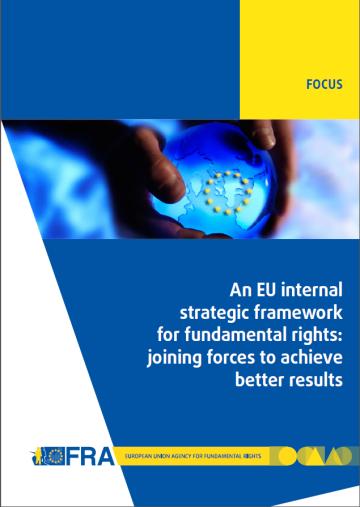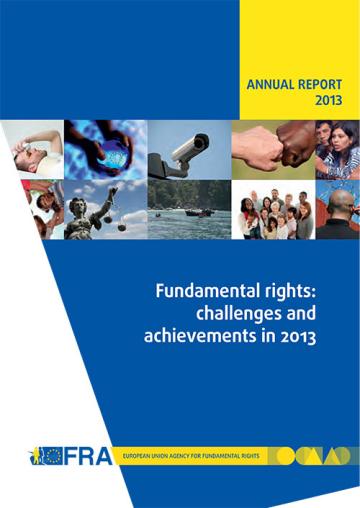
Fundamental rights: key legal and policy developments in 2013. Highlights 2013
assuming
new international commitments, revamping legislation and pursuing innovative policies on the ground. Yet, fundamental
rights violations seized the spotlight with distressing frequency: would‑be migrants drowning off the EU’s coast,
unprecedented mass surveillance, racist and extremist‑motivated murders, child poverty and Roma deprivation.
In response, the EU completed a series of important legal reforms, particularly in asylum, while Member States worked to transpose the EU Victims’ Directive into national law and pursued their national Roma integration strategies. Still, new laws on the books do not necessarily transform the situation on the ground. Crisis‑driven austerity measures raised some fundamental rights concerns. A persisting gap between law and practice troubled a broad spectrum of human rights observers, particularly in asylum policy, Roma integration and child and victims’ rights.
This year’s summary of the FRA Annual report – Highlights 2013 – puts the spotlight on key legal and policy developments in the field of fundamental rights in 2013, covering the following topics: asylum, immigration and integration; border control and visa policy; information society, respect for private life and data protection; the rights of the child and the protection of children; equality and non‑discrimination; racism, xenophobia and related intolerance; access to justice and judicial cooperation; rights of crime victims; EU Member States and international obligations. It also features fundamental rights‑related developments in two new areas: Roma integration, following the drawing up of the national Roma integration strategies, and the use of the EU Charter of Fundamental Rights before national courts as it approaches its fifth anniversary as a binding document.

